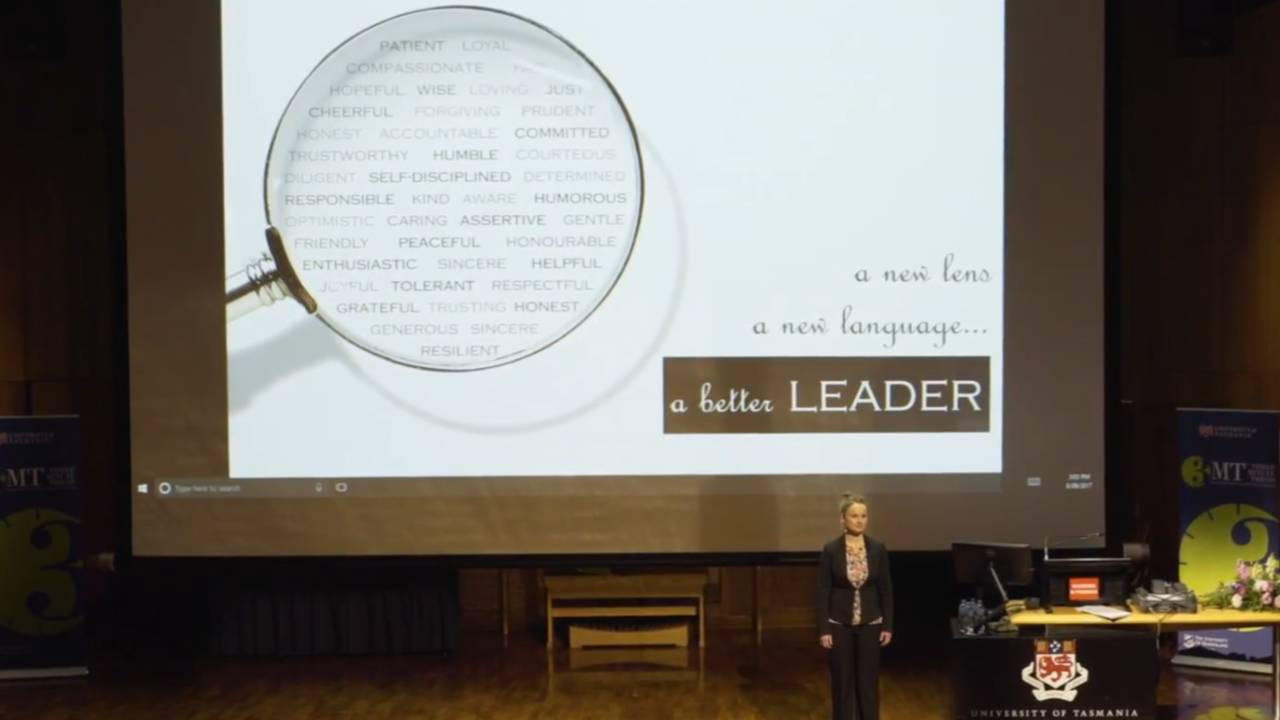
A new lens, a new language
Aug 05, 2019What does good leadership look like during these exceptional times?
Our partner and friend, Toby Newstead, asked that very same question.
After participating in the two-day, "Virtues @ Work: The Virtues Project" - facilitated by Dara Feldman in 2017 - Toby wrote her PhD thesis on this program as a best practice for leaders to do good for themselves, their followers, organizations, and communities.
Her conclusion. "At the root of good leadership is character, and character is composed of virtues. Virtues such as courage, wisdom, resilience, forgiveness, kindness, justice, integrity and honesty are the essence of character."
Her results analysis is why we chose the following 3-minute video as our inaugural blog post.
As you watch, think about your leadership/parenting style and what it feels like when someone sees and acknowledges the very best in you.
Testimonial - Toby Newstead
"Dara traveled halfway around the world to deliver two days of training to my nine participating leaders. This is a testament to her commitment to furthering good work of The Virtues Project and it is a symptom of her contagious enthusiasm. Workshop participants reported that Dara was one of the best facilitators they had experienced. She had a group of high-level corporate and government sector leaders sharing personal reflections, dancing happy dances, role-playing virtues-based performance feedback, and stretching to become a better version of their personal and professional selves. Each participating leader left the two days with a new understanding of virtues and the ability to 'see' virtues in their own and others' behaviour."
Transcript
I'd like you to think of someone you love...
Now have a look at the words on the screen and raise your hand if you see any that describe the person you are thinking about.
These attributes or characteristics, these are virtues.
Virtues are the building blocks of character.
Virtues like these are what compose the goodness part of each of us.
Virtues are a major feature of my Phd research but they are not my primary focus.
My primary focus is leadership.
Leadership is most simply understood as the process of one person getting other people to do something.
And leadership is very big business.
In the United States alone, it is estimated that every year companies are spending more than $16b trying to develop their leaders.
Despite this, we academics cant seem to come to any real consensus on exactly what leadership is nor how to do leadership well.
We have dozens of theories and multiple measures and none of them seem to quite agree.
My investigation of leadership sidesteps this sort of theoretical quagmire and instead attempts to address one question. How can we scholars help practicing leaders to be and to do good.
Well we know that the goodness part of us is composed of virtues like these.
So I designed an exploratory leadership development intervention study to help me understand the process and outcomes achieved when I put nine leaders from seven different Tasmanian organization through two days of virtues based leadership development training.
Now, through multiple interviews and surveys with each of my nine leaders and with their colleagues, I'm beginning to piece together a picture of how they experienced the training and what has resulted.
Essentially, learning about virtues and learning a few very basic virtues development strategies, has given my leaders a new lens and a new language. They reported a new lens - a sort of virtues framework through which they can better understand in themselves and in others how virtues such as joyfulness, or justice, or courage, give rise to behaviors.
And they have reported a new language which they are using to recognize others, not so much for a task well done but for those virtues, the diligence, or determination, or creativity that enabled that task.
Learning about virtues helped my leaders become better leaders by giving them a new lens to recognize and a new language to acknowledge - in themselves and in others - those virtues that compose the goodness part of each of us.
So I will end how I began. With a question. What would it feel like to be led by someone who saw and acknowledged the very best in you?

